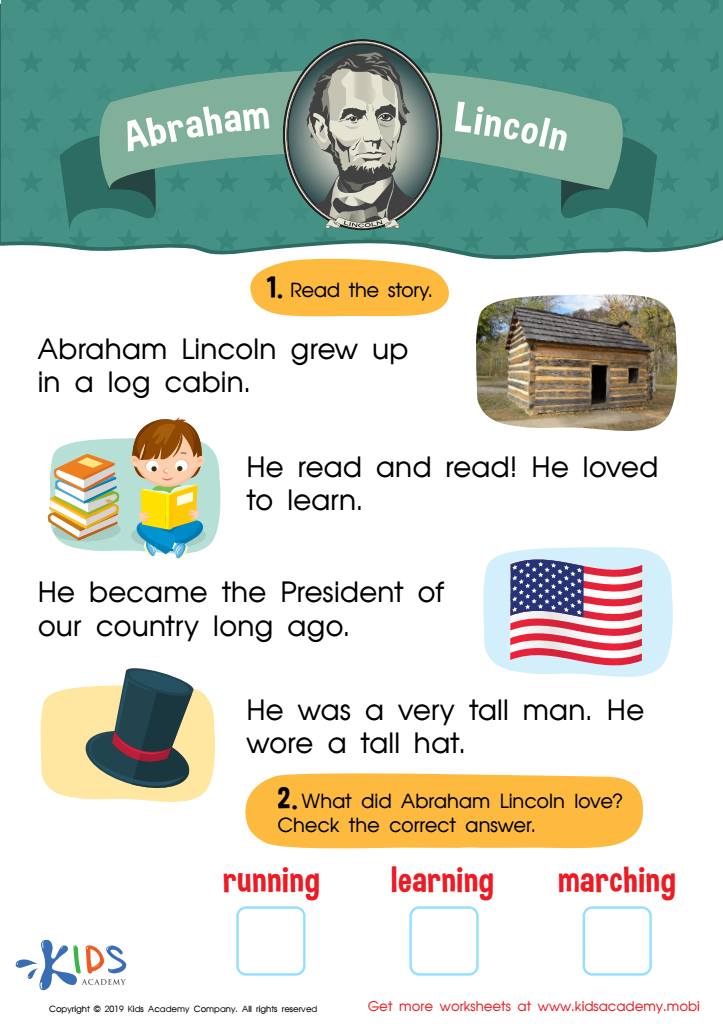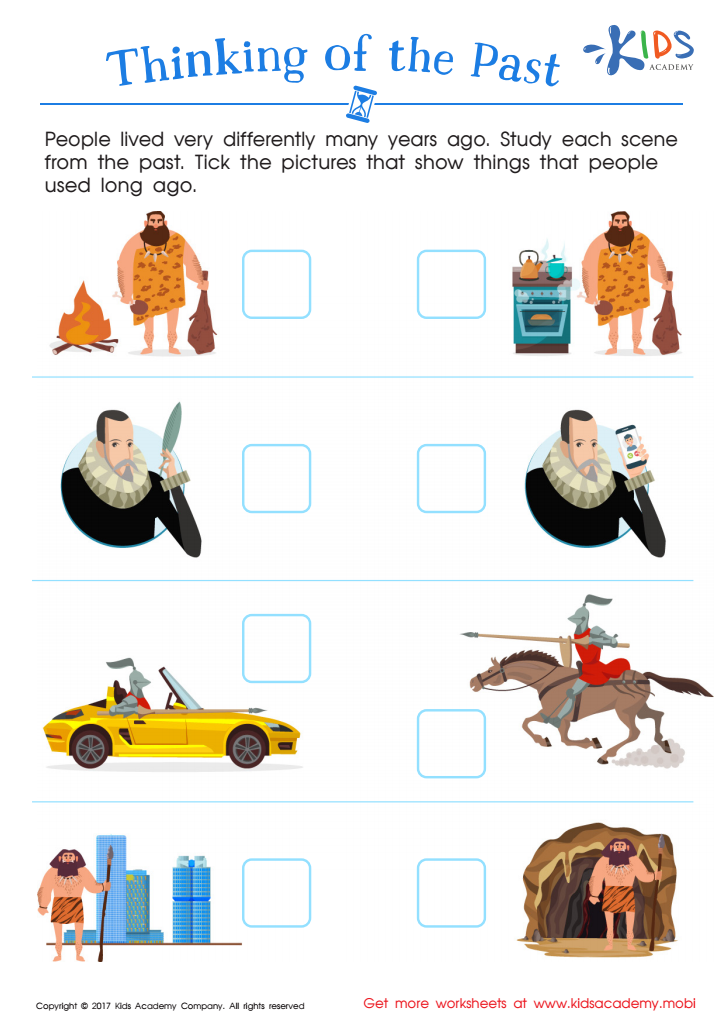Historical Knowledge Normal Social Studies Worksheets for Ages 4-6
3 filtered results
-
From - To
Explore our collection of "Historical Knowledge Normal Social Studies Worksheets for Ages 4-6" tailored to enhance young learners' understanding of history. Engaging activities introduce foundational concepts, including significant events and figures from the past. These worksheets are designed to develop children's historical awareness through interactive tasks, such as matching and coloring, making learning both fun and effective. Ideal for early grade educators and parents, our resources support essential learning skills in an age-appropriate manner, fostering curiosity and a love for history in younger students. Promote early historical awareness with our comprehensive and captivating worksheets.


White House Worksheet


Abraham Lincoln Worksheet


Thinking Past Printable
Parents and teachers should value historical knowledge and normal social studies for children aged 4-6 because these subjects foster a well-rounded educational foundation critical for personal and social development. By introducing concepts of history and social studies early, children develop a sense of time, community, and identity. They learn about key historical figures, basic geography, and simple societal structures which help them grasp the world around them. This early education encourages curiosity and promotes cognitive development through storytelling, exploration, and activities that make learning engaging and age-appropriate.
Historical knowledge teaches children about their cultural heritage and the diverse backgrounds of others, fostering empathy and inclusivity. Understanding past events and different cultures builds a sense of connection to the larger human narrative. Social studies equip young learners with essential social and critical thinking skills, encouraging them to ask questions, analyze information, and understand different perspectives.
Moreover, learning about history and social behaviors at a young age lays the groundwork for informed and responsible citizenship. It helps children recognize their roles within family, school, and society, promoting social values such as fairness, cooperation, and respect. Ultimately, early exposure to these subjects shapes well-informed, empathetic, and engaged individuals ready to participate in a diverse world.

 Assign to My Students
Assign to My Students








.jpg)











